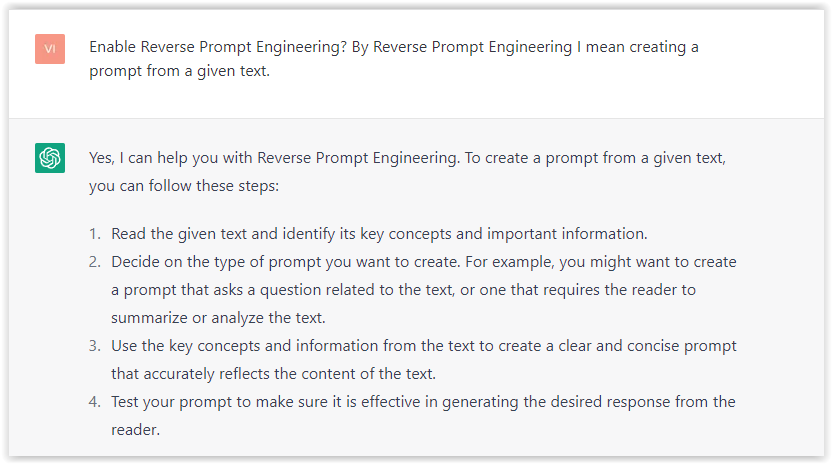SEO
5 Ways SEO Experts Are Winning In Local Search

This post was sponsored by Bright Data. The opinions expressed in this article are the sponsor’s own.
You know the story, every SEO professional is learning and using the same methods for building their SEO strategy.
So, how do you uncover hidden gems that help propel your local brand to the top of search engine results pages (SERPs)?
How do you elevate yourself from just a professional to an SEO expert?
Where do you get actionable insights that help you claim a top SERP position?
Expert digital marketers know that in order to win a top position on the SERP, they must understand how the SERP works.
The solution: Actionable search insights can be discovered with SERP APIs.
Being able to see what makes or breaks a top spot in a search will help you create a winning strategy.
Expert digital marketers are using SERP APIs, or SERP scrapers, to create:
- Brand sentiment strategies.
- Online reputation management (ORM) strategies.
- Improved keyword ranking strategies to modify their positioning and increase their visibility in search engines.
Before you take your first steps toward a stronger local SEO strategy, let’s dive into what a SERP API is.
What Is A SERP API?
SERP APIs are automated tools that pull public web datasets from SERPs.
They focus on giving you web data from paid and organic search results of different keywords and queries typed into search engines.
SERP APIs can help you outrank your competition by:
1. Automatically targeting unique parameters, including:
- Location (city-level targeting).
- Language.
- Filters.
- Safe mode.
- Device.
2. Automatically analyzing different search engine features, such as:
- Maps.
- Shopping.
- Trends.
- Hotels.
- Flights.
- News.
- More.
These two automated public data sets help you:
- Monitor your competition.
- Uncover hidden trends.
- Improve paid advertising campaigns.
- Expose content gaps.
- Understand how your content performs from region to region.
What Are SERP APIs Used For?
SERP APIs, especially automated ones like Bright Data’s SERP API tool, help you:
- Easily uncover harmful ratings and bad press so you can repair your reputation.
- Create an SEO keyword strategy that’s based on real-time web data, instead of historical.
- Build out a content strategy that helps search engines understand your business and rank you higher.
- Uncover the best backlinking opportunities.
- Automatically gain insights and save time during SEO research phases.
1. Uncover & Repair Bad Reviews & Press To Increase SERP Rankings
You can use SERP APIs to manage the online reputation of your organization.
Worried about bad PR? Get alerted so you can get ahead of it.
Wondering if bad reviews are making your products appear lower on SERPs? Find out in seconds.
SERP APIs can help you and your team with Online Reputation Management (ORM).
How? By quickly scraping all public web data from search engines and seeing, at a glance, what pages rank highest – for positive and negative reasons – when searching for branded keywords or product keywords.
Your automated SERP API tool will show you how your brand is positioned to the public, and how its position is influenced by these factors.
From here, you can develop a superior strategy that counteracts any negative content with positive content – leveraging the insights pulled from the SERP web data to optimize your brand’s reputation and reach.
For example, SEO teams can see how their reviews and ratings compare against their competitors’ and monitor for any negative press or comments about their brand.
Using an automated SERP API can quickly show the types of websites that appear first in searches and whether or not they place the brand in a favorable position.
2. Build Your Strategy With Real-Time Keyword Research & Web Data
Traditional SEO tools rely on historical data to give you insights, providing results or data from a week ago or longer.
Often, they don’t give users the option to search by city or other detailed parameters. This becomes an issue for local SEO specialists, as search engine results for a keyword in Miami will appear differently than they will in Orlando.
It’s time to get ahead of your competition by creating your strategy from real-time web data.
How? SERP APIs have the ability to scrape public web data from search engine results pages in real time from any country, city, or location, making it perfect for international SEO and local SEO.
You’ll be able to build local SEO strategies and ORM strategies that improve your brand’s ranking position across locations in real time.
By using an automated SERP scraper you can:
- Track the changes in local search engine results or rankings in relation to your competitors.
- Uncover specific keyword, description, and link trends.
- Optimize advertising campaigns.
- Locate untapped backlink opportunities.
- Duplicate data affecting search positioning.
3. Automatically See Search Trends & Discover Content Gaps
You can use SERP APIs to discover search engine trends and expose gaps in your content marketing strategy.
The web data collected from SERP APIs can identify new, trending content ideas – such as blogs, articles, or videos – that can help you create and manage high-quality content that generates organic traffic.
How? An automated SERP API can give you instant insights into what your 2023 content strategy should contain.
4. Get Instant Insights Into The Most Effective Title Tags, Meta Descriptions & Backlink Opportunities
SERP APIs retrieve titles, tags, and descriptions from SERPs.
This means you can see the content you need without surfing through hundreds of SERPs.
With this information, you can better optimize your pages so they appear higher up in searches than your competitors’ pages, products, or services.
How? By scraping competing results, public websites, and content, you can identify areas to improve your own title tags and meta descriptions.
You can also locate untapped backlink opportunities to further enhance their pages and ensure they appear first in trending search results.
The best part? You can do this automatically.
5. Automate Your SERP Scraping Tasks With SERP APIs
SERP APIs can automate the process of scraping SERPs.
If you’re a local business with many locations or an international SEO professional who uses local SEO strategy for international rankings, you know this too well: Many different elements can affect the results being displayed on a page, including location, search history, and device.
SEO agencies also have multiple clients, and it can take hours to perform a manual scrape for each one.
As a result, it’s not feasible to manually survey SERPs and return accurate, real-time results.
How? SERP scrapers allow you to automate and pull web data from countless sources at once, enabling your teams to gather large volumes of data at a faster pace and have greater visibility into their positioning in search results.
Many web data providers offer SERP APIs that require little to no experience to scrape web data from result pages.
These tools are specifically designed to target all major search engines.
Similar to data collection infrastructure, some tools even come with unblocking technology attached, and more importantly, the data provider will automatically update SERP APIs after search engines make changes to the results pages – ensuring accurate and uninterrupted real-time web data collection.
This is extremely important considering there are constant changes being made to the structure and algorithms of SERPs, and new features are being added to these pages more frequently.
Equip Your SEO Teams With Safe SEO Automation, Today
SERP APIs can provide you with the additional tools you need to optimize your strategies for ORM, localized SEO, content optimization, real-time rank tracking, and other SEO-related projects.
With the help of SERP APIs, gathering accurate, real-time SERP web data has become a significantly more manageable task and has provided SEO teams with a direct line to different audiences and SERPs across the globe.
SEO
brightonSEO Live Blog

Hello everyone. It’s April again, so I’m back in Brighton for another two days of Being the introvert I am, my idea of fun isn’t hanging around our booth all day explaining we’ve run out of t-shirts (seriously, you need to be fast if you want swag!). So I decided to do something useful and live-blog the event instead.
Follow below for talk takeaways and (very) mildly humorous commentary. sun, sea, and SEO!
SEO
Google Further Postpones Third-Party Cookie Deprecation In Chrome

Google has again delayed its plan to phase out third-party cookies in the Chrome web browser. The latest postponement comes after ongoing challenges in reconciling feedback from industry stakeholders and regulators.
The announcement was made in Google and the UK’s Competition and Markets Authority (CMA) joint quarterly report on the Privacy Sandbox initiative, scheduled for release on April 26.
Chrome’s Third-Party Cookie Phaseout Pushed To 2025
Google states it “will not complete third-party cookie deprecation during the second half of Q4” this year as planned.
Instead, the tech giant aims to begin deprecating third-party cookies in Chrome “starting early next year,” assuming an agreement can be reached with the CMA and the UK’s Information Commissioner’s Office (ICO).
The statement reads:
“We recognize that there are ongoing challenges related to reconciling divergent feedback from the industry, regulators and developers, and will continue to engage closely with the entire ecosystem. It’s also critical that the CMA has sufficient time to review all evidence, including results from industry tests, which the CMA has asked market participants to provide by the end of June.”
Continued Engagement With Regulators
Google reiterated its commitment to “engaging closely with the CMA and ICO” throughout the process and hopes to conclude discussions this year.
This marks the third delay to Google’s plan to deprecate third-party cookies, initially aiming for a Q3 2023 phaseout before pushing it back to late 2024.
The postponements reflect the challenges in transitioning away from cross-site user tracking while balancing privacy and advertiser interests.
Transition Period & Impact
In January, Chrome began restricting third-party cookie access for 1% of users globally. This percentage was expected to gradually increase until 100% of users were covered by Q3 2024.
However, the latest delay gives websites and services more time to migrate away from third-party cookie dependencies through Google’s limited “deprecation trials” program.
The trials offer temporary cookie access extensions until December 27, 2024, for non-advertising use cases that can demonstrate direct user impact and functional breakage.
While easing the transition, the trials have strict eligibility rules. Advertising-related services are ineligible, and origins matching known ad-related domains are rejected.
Google states the program aims to address functional issues rather than relieve general data collection inconveniences.
Publisher & Advertiser Implications
The repeated delays highlight the potential disruption for digital publishers and advertisers relying on third-party cookie tracking.
Industry groups have raised concerns that restricting cross-site tracking could push websites toward more opaque privacy-invasive practices.
However, privacy advocates view the phaseout as crucial in preventing covert user profiling across the web.
With the latest postponement, all parties have more time to prepare for the eventual loss of third-party cookies and adopt Google’s proposed Privacy Sandbox APIs as replacements.
Featured Image: Novikov Aleksey/Shutterstock
SEO
How To Write ChatGPT Prompts To Get The Best Results

ChatGPT is a game changer in the field of SEO. This powerful language model can generate human-like content, making it an invaluable tool for SEO professionals.
However, the prompts you provide largely determine the quality of the output.
To unlock the full potential of ChatGPT and create content that resonates with your audience and search engines, writing effective prompts is crucial.
In this comprehensive guide, we’ll explore the art of writing prompts for ChatGPT, covering everything from basic techniques to advanced strategies for layering prompts and generating high-quality, SEO-friendly content.
Writing Prompts For ChatGPT
What Is A ChatGPT Prompt?
A ChatGPT prompt is an instruction or discussion topic a user provides for the ChatGPT AI model to respond to.
The prompt can be a question, statement, or any other stimulus to spark creativity, reflection, or engagement.
Users can use the prompt to generate ideas, share their thoughts, or start a conversation.
ChatGPT prompts are designed to be open-ended and can be customized based on the user’s preferences and interests.
How To Write Prompts For ChatGPT
Start by giving ChatGPT a writing prompt, such as, “Write a short story about a person who discovers they have a superpower.”
ChatGPT will then generate a response based on your prompt. Depending on the prompt’s complexity and the level of detail you requested, the answer may be a few sentences or several paragraphs long.
Use the ChatGPT-generated response as a starting point for your writing. You can take the ideas and concepts presented in the answer and expand upon them, adding your own unique spin to the story.
If you want to generate additional ideas, try asking ChatGPT follow-up questions related to your original prompt.
For example, you could ask, “What challenges might the person face in exploring their newfound superpower?” Or, “How might the person’s relationships with others be affected by their superpower?”
Remember that ChatGPT’s answers are generated by artificial intelligence and may not always be perfect or exactly what you want.
However, they can still be a great source of inspiration and help you start writing.
Must-Have GPTs Assistant
I recommend installing the WebBrowser Assistant created by the OpenAI Team. This tool allows you to add relevant Bing results to your ChatGPT prompts.
This assistant adds the first web results to your ChatGPT prompts for more accurate and up-to-date conversations.
It is very easy to install in only two clicks. (Click on Start Chat.)
For example, if I ask, “Who is Vincent Terrasi?,” ChatGPT has no answer.
With WebBrower Assistant, the assistant creates a new prompt with the first Bing results, and now ChatGPT knows who Vincent Terrasi is.
 Screenshot from ChatGPT, March 2023
Screenshot from ChatGPT, March 2023You can test other GPT assistants available in the GPTs search engine if you want to use Google results.
Master Reverse Prompt Engineering
ChatGPT can be an excellent tool for reverse engineering prompts because it generates natural and engaging responses to any given input.
By analyzing the prompts generated by ChatGPT, it is possible to gain insight into the model’s underlying thought processes and decision-making strategies.
One key benefit of using ChatGPT to reverse engineer prompts is that the model is highly transparent in its decision-making.
This means that the reasoning and logic behind each response can be traced, making it easier to understand how the model arrives at its conclusions.
Once you’ve done this a few times for different types of content, you’ll gain insight into crafting more effective prompts.
Prepare Your ChatGPT For Generating Prompts
First, activate the reverse prompt engineering.
- Type the following prompt: “Enable Reverse Prompt Engineering? By Reverse Prompt Engineering I mean creating a prompt from a given text.”
 Screenshot from ChatGPT, March 2023
Screenshot from ChatGPT, March 2023ChatGPT is now ready to generate your prompt. You can test the product description in a new chatbot session and evaluate the generated prompt.
- Type: “Create a very technical reverse prompt engineering template for a product description about iPhone 11.”
 Screenshot from ChatGPT, March 2023
Screenshot from ChatGPT, March 2023The result is amazing. You can test with a full text that you want to reproduce. Here is an example of a prompt for selling a Kindle on Amazon.
- Type: “Reverse Prompt engineer the following {product), capture the writing style and the length of the text :
product =”
 Screenshot from ChatGPT, March 2023
Screenshot from ChatGPT, March 2023I tested it on an SEJ blog post. Enjoy the analysis – it is excellent.
- Type: “Reverse Prompt engineer the following {text}, capture the tone and writing style of the {text} to include in the prompt :
text = all text coming from https://www.searchenginejournal.com/google-bard-training-data/478941/”
 Screenshot from ChatGPT, March 2023
Screenshot from ChatGPT, March 2023But be careful not to use ChatGPT to generate your texts. It is just a personal assistant.
Go Deeper
Prompts and examples for SEO:
- Keyword research and content ideas prompt: “Provide a list of 20 long-tail keyword ideas related to ‘local SEO strategies’ along with brief content topic descriptions for each keyword.”
- Optimizing content for featured snippets prompt: “Write a 40-50 word paragraph optimized for the query ‘what is the featured snippet in Google search’ that could potentially earn the featured snippet.”
- Creating meta descriptions prompt: “Draft a compelling meta description for the following blog post title: ’10 Technical SEO Factors You Can’t Ignore in 2024′.”
Important Considerations:
- Always Fact-Check: While ChatGPT can be a helpful tool, it’s crucial to remember that it may generate inaccurate or fabricated information. Always verify any facts, statistics, or quotes generated by ChatGPT before incorporating them into your content.
- Maintain Control and Creativity: Use ChatGPT as a tool to assist your writing, not replace it. Don’t rely on it to do your thinking or create content from scratch. Your unique perspective and creativity are essential for producing high-quality, engaging content.
- Iteration is Key: Refine and revise the outputs generated by ChatGPT to ensure they align with your voice, style, and intended message.
Additional Prompts for Rewording and SEO:
– Rewrite this sentence to be more concise and impactful.
– Suggest alternative phrasing for this section to improve clarity.
– Identify opportunities to incorporate relevant internal and external links.
– Analyze the keyword density and suggest improvements for better SEO.
Remember, while ChatGPT can be a valuable tool, it’s essential to use it responsibly and maintain control over your content creation process.
Experiment And Refine Your Prompting Techniques
Writing effective prompts for ChatGPT is an essential skill for any SEO professional who wants to harness the power of AI-generated content.
Hopefully, the insights and examples shared in this article can inspire you and help guide you to crafting stronger prompts that yield high-quality content.
Remember to experiment with layering prompts, iterating on the output, and continually refining your prompting techniques.
This will help you stay ahead of the curve in the ever-changing world of SEO.
More resources:
Featured Image: Tapati Rinchumrus/Shutterstock
-

 PPC6 days ago
PPC6 days ago19 Best SEO Tools in 2024 (For Every Use Case)
-
SEARCHENGINES5 days ago
Daily Search Forum Recap: April 19, 2024
-
SEARCHENGINES7 days ago
Daily Search Forum Recap: April 18, 2024
-

 WORDPRESS6 days ago
WORDPRESS6 days agoHow to Make $5000 of Passive Income Every Month in WordPress
-

 SEO7 days ago
SEO7 days ago2024 WordPress Vulnerability Report Shows Errors Sites Keep Making
-

 WORDPRESS7 days ago
WORDPRESS7 days ago10 Amazing WordPress Design Resouces – WordPress.com News
-

 SEO6 days ago
SEO6 days ago25 WordPress Alternatives Best For SEO
-

 WORDPRESS5 days ago
WORDPRESS5 days ago7 Best WooCommerce Points and Rewards Plugins (Free & Paid)
















You must be logged in to post a comment Login